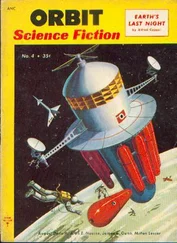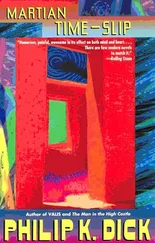Philip Dick - Time Out of Joint
Здесь есть возможность читать онлайн «Philip Dick - Time Out of Joint» весь текст электронной книги совершенно бесплатно (целиком полную версию без сокращений). В некоторых случаях можно слушать аудио, скачать через торрент в формате fb2 и присутствует краткое содержание. Жанр: Фантастика и фэнтези, на английском языке. Описание произведения, (предисловие) а так же отзывы посетителей доступны на портале библиотеки ЛибКат.
- Название:Time Out of Joint
- Автор:
- Жанр:
- Год:неизвестен
- ISBN:нет данных
- Рейтинг книги:5 / 5. Голосов: 1
-
Избранное:Добавить в избранное
- Отзывы:
-
Ваша оценка:
- 100
- 1
- 2
- 3
- 4
- 5
Time Out of Joint: краткое содержание, описание и аннотация
Предлагаем к чтению аннотацию, описание, краткое содержание или предисловие (зависит от того, что написал сам автор книги «Time Out of Joint»). Если вы не нашли необходимую информацию о книге — напишите в комментариях, мы постараемся отыскать её.
Time Out of Joint — читать онлайн бесплатно полную книгу (весь текст) целиком
Ниже представлен текст книги, разбитый по страницам. Система сохранения места последней прочитанной страницы, позволяет с удобством читать онлайн бесплатно книгу «Time Out of Joint», без необходимости каждый раз заново искать на чём Вы остановились. Поставьте закладку, и сможете в любой момент перейти на страницу, на которой закончили чтение.
Интервал:
Закладка:
Shifting into low gear, he let the truck climb the awfully steep hill. Now the pavement had turned to packed dirt. Deep troughs, from previous vehicles. Something brushed the top of the truck; he ducked involuntarily. His headlights flashed into foliage, streaming off the road as the truck pointed toward the edge of a descent. Then the road veered sharply to the left; he forced the wheel to turn. Again the road appeared, hemmed in by shrubbery that had crept out onto it. The road became narrower; he pushed down on the brake as the truck lurched over a pothole.
On the next turn the truck missed the edge of the road. Both right wheels spun into the underbrush; the truck spun about and he slammed down on the brakes, killing the motor. The truck leaned. He felt himself sliding away from the wheel; clutching with his hands he managed to grasp the door handle. The truck lifted, groaned, and then came to rest, half turned over.
That's all of that, he thought to himself.
After a few moments he was able to open the door and step out.
The headlights glared from the trees and bushes. Sky above. The road almost lost as it climbed still farther up. Turning, Ragle looked back down. Far below he could see the line of lights, the highway. But no town. No settlement. The edge of the hill cut the lights off, sheared them away.
He began to walk up the road, going more by touch than sight. When his right foot struck foliage he directed himself left. The radar beam, he said to himself. Keep on course, or go off headfirst.
In the foliage various things rustled. He heard them depart at the sound of his approach. Harmless, he thought. Or they wouldn't be getting away as fast as possible.
Suddenly he missed his footing; stumbling, he managed to right himself. The road had leveled out. Wheezing, he halted. He had reached the top of the hill.
To his right, the light glowed. A house, set back from the road. A ranch house. Evidently occupied. Light coming from windows.
He walked toward it, up a dirt trail to a fence. Feeling with his hands he discovered a gate. At great length he slid the gate back. The trail, two deep ruts, led on toward the house. At last, after falling a number of times, he crashed against stone steps.
The house. He had got to it.
Arms extended, he climbed the steps to the porch. His hands groped about until his fingers closed over an old-fashioned bell.
He rang the bell and stood waiting, gasping for breath, shivering in the night cold.
The door opened and a drab, brown-haired, middle-aged woman looked out at him. She wore tan slacks and a checkered red and brown shirt and work shoes with high, buttoned tops. _Mrs. Keitelbein_, his mind said. It's she. But it wasn't. He stared at her and she stared back.
"Yes?" she said. Behind her, in the living room, someone else, a man, peered past her at him. "What do you want?" she said.
Ragle said, "My car broke down."
"Oh, come in," the woman said. She held the door wide for him. "Are you injured? You're alone?" She stepped out onto the porch to see if there was anyone else.
"Just me," he said. Bird's-eye maple furniture... a low chair, table, long bench with a portable typewriter on it. A fireplace. Wide boards, beams overhead. "Nice," he said, going toward the fireplace.
A man, holding an open book. "You can use our phone," the man said. "How far did you have to walk?"
"Not too far," he said. The man had a bland, ample face, as smooth as a boy's. He appeared to be much younger than the woman, her son perhaps. _Like Walter Keitelbein_, he thought. Striking resemblance. For a moment...
"You're lucky to find us," the woman said. "We're the only house up on the hill that's occupied. Everyone else is away until summer."
"I see," he said.
"We're year-round," the young man said.
The woman said, "I'm Mrs. Kesselman. And this is my son."
Ragle stared at the two of them.
"What's the matter?" Mrs. Kesselman said.
"I -- thought I recognized the name," Ragle said. What did it imply? But the woman definitely was not Mrs. Keitelbein. And the young man was not Walter. So the fact that they resembled one another meant nothing.
"What were you doing out this way?" Mrs. Kesselman asked. "This is such a godforsaken mound of earth when everyone's away. I know it may sound paradoxical for me to say that, since we live up here."
Ragle said, "I was looking for a friend."
That seemed to satisfy the Kesselmans. They both nodded. "My car left the road and turned over on one of those spiral curves," Ragle said.
"Oh dear," Mrs. Kesselman said. "How distressing. Did it slide off the road? Down into the gully?"
"No," he said. "But it'll have to be towed back up. I'd be afraid to get back into it. It might slip and go further down."
"By all means stay out of it," Mrs. Kesselman said. "There have been instances of cars sliding off the edge and going all the way to the bottom. Do you want to telephone your friend and tell him you're all right?"
Ragle said, "I don't know his number."
"Can't you look it up in the book?" the young Mr. Kesselman asked.
"I don't know his name," Ragle said. "Or even if it's a man." Or, he thought, even if he or she exists.
The Kesselmans smiled at him trustingly. Supposing, of course, that what he meant was not as cryptic as it sounded.
"Would you like to call a tow truck?" Mrs. Kesselman said. But her son spoke up.
"Nobody'll send a tow truck up here at night," he said. "We've had that out with the different garages. They won't budge."
"That's true," Mrs. Kesselman said. "Oh dear. This is a problem. We've always dreaded this happening to us. But it never has. Of course we know the road so well, after so many years."
The younger Kesselman said, "I'd be glad to drive you to your friend's place, if you have any idea where it is. Or I could drive you back down to the highway, or into town." He glanced at his mother and she nodded in agreement.
"That's very kind of you," Ragle said. But he did not want to leave; he placed himself at the fireplace, warming himself and enjoying the peacefulness of the room. It seemed to him to be in some respects the most civilized house he had been in that he could remember. The prints on the walls. The lack of clutter. No useless bric-a-brac. And everything arranged with taste, the books, the furniture, the drapes... it satisfied his strong innate sense of order. His awareness of pattern. There exists a real esthetic balance here, he decided. That's why it's so restful.
Mrs. Kesselman waited for him to do or say something. When he continued to stand at the fireplace she said, "Would you like something to drink?"
"Yes," he said. "Thanks."
"I'll see what there is," Mrs. Kesselman said. "Excuse me." She departed from the room. Her son remained.
"Kind of cold out," her son said.
"Yes," Ragle said.
Awkwardly, the young man stuck out his hand. "My name's Garret," he said. They shook hands. "I'm in the interior decorating field."
That explained the taste shown in the room. "This looks very nice," Ragle said.
"What line are you in?" Garret Kesselman asked.
"I'm involved in newspaper work," Ragle said.
"Oh, I'll be darned," Garret said. "No kidding. That must be a fascinating business. When I was in school I took a couple of years of journalism."
Mrs. Kesselman returned with a tray on which were three small glasses and an unusual-shaped bottle. "Tennessee sourmash whiskey," she said, setting the tray down on the glasstopped coffee table. "From the oldest distillery in the country. Jack Daniel's black label."
"I never heard of it," Ragle said, "but it sounds wonderful."
"It's excellent whiskey," Garret said, handing Ragle a glass of the stuff. "Something like Canadian whiskey."
"I'm a beer drinker, usually," Ragle said. He tasted the sourmash whiskey and it seemed all right. "Fine," he said.
Читать дальшеИнтервал:
Закладка:
Похожие книги на «Time Out of Joint»
Представляем Вашему вниманию похожие книги на «Time Out of Joint» списком для выбора. Мы отобрали схожую по названию и смыслу литературу в надежде предоставить читателям больше вариантов отыскать новые, интересные, ещё непрочитанные произведения.
Обсуждение, отзывы о книге «Time Out of Joint» и просто собственные мнения читателей. Оставьте ваши комментарии, напишите, что Вы думаете о произведении, его смысле или главных героях. Укажите что конкретно понравилось, а что нет, и почему Вы так считаете.









